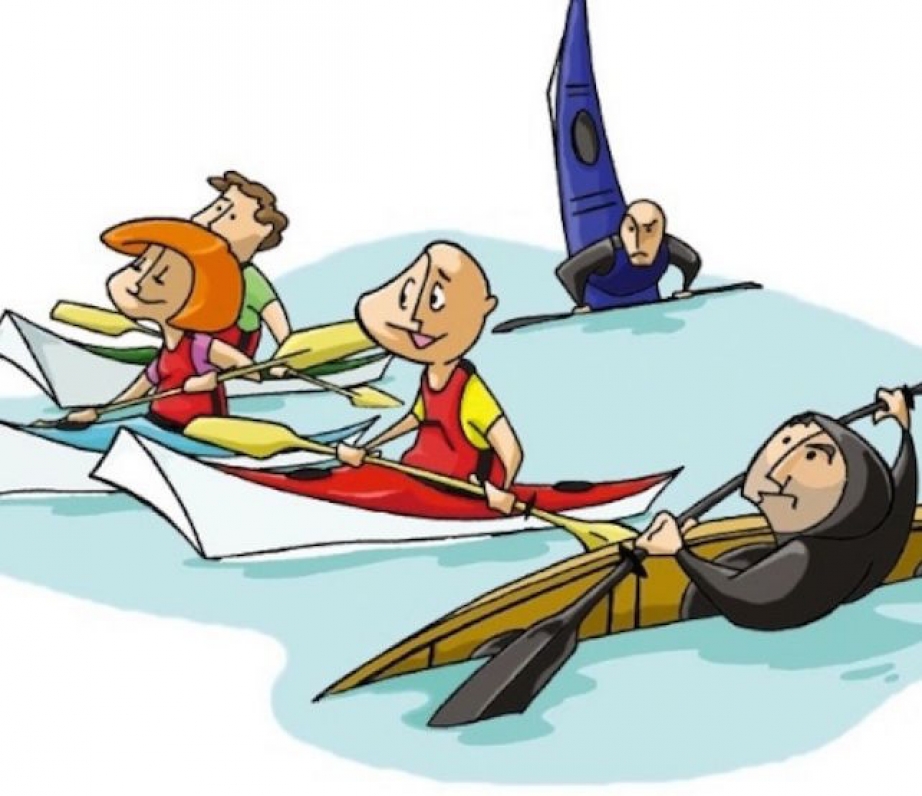There was a time in the early ‘90s that the Clayoquot Sound beach on which I live was host to half a dozen private groups of kayakers on any one evening. Sometimes, as many as 50 campers vied for a spot to put their tents during the summer months.
During the summer of 2011, it was a very different scene. Calm seas and mild weather did not entice the numbers of previous years. Labor Day brought silky seas and warm, sunny days but the only campers on our beach were hikers dropped there by water taxi.
From April to September, the groups that did arrive were mostly instructor training or outdoor programs run by colleges and high schools. The rest were a smattering of commercial tours with their distinctive green and white tarps and customers who always look just a little out of place.
What’s going on?
To answer that question, I have to go back 10 years to a consulting job I did for a retail store that sold dive gear in one half of the shop and sea kayaks in the other. I asked the staff what they were really selling on the dive side of the shop. After much discussion they agreed they were selling a sense of belonging. Belonging to a society whose members had undergone a rite of passage. They had completed the courses and received the blessing of their peers. They were certified divers.
So what about the sea kayaking side of the shop? There they agreed that they were selling free- dom. It was noted to the surprise of the shop’s owners that the crossover was barely 15 percent. This difference isn’t one of chance. When sea kayaking began to take off in North America
in the 1980s, I was in the midst of it as a publisher, retailer and manufacturer. The sport’s popularity at that time was due in large part to a conscious focus upon accessibility to ordi- nary folk, especially women and families.
We realized that we had to avoid the macho whitewater attitude with its over-emphasis on technique. Rolling, surveys told us, was a turn-off for most of our customers, and not much use for the most common emergency situation in which a paddler becomes gradually overwhelmed by conditions.
We had the British as an example of what not to do. Across the pond, a thriving post-war kayak industry had been reduced to a tenth of its glory of the ‘50s and ‘60s. Instructors bent on right and wrong had scorned and certified the kit-built boat people and their simple craft out of the market, replacing them with heavy West Greenland-style boats that appealed to a very different crowd. From family activity, “sea canoeing” became 90 percent young males.
I am convinced that the reduced number of serious sea kayakers who appear on our beach each year has to do with the shift of sea kayaking from a freedom-centered activity to a belonging or following activity. The first question a new member to a local sea kayak club was recently asked by other members was,“What level (of certification) are you?”
New books on sea kayaking do not emphasize seamanship, which is at the heart of the activity, but focus in excruciating detail on an array of marginally relevant whitewater strokes and a forward stroke taken straight from flatwater racing. The distinction between surf kaya- king and sea kayaking has become blurred. The mood has changed.
I predict that those who have brought about these changes will find themselves regulating a smaller and less freedom-loving group. Such few kayakers who make it out to our beach under their own power will be the remnants of an old guard I’ve come to know and like so well.
We can talk about life, not just levels.
John Dowd is the author of the classic text, Sea Kayaking: A Manual for Long-Distance Touring, and paddled from Venezuela to Florida in 1977, long before kayakers carded each other.
This article originally appeared in Adventure Kayak, Fall 2012. Download our free iPad/iPhone/iPod Touch App or Android App or read it here.
